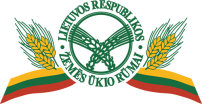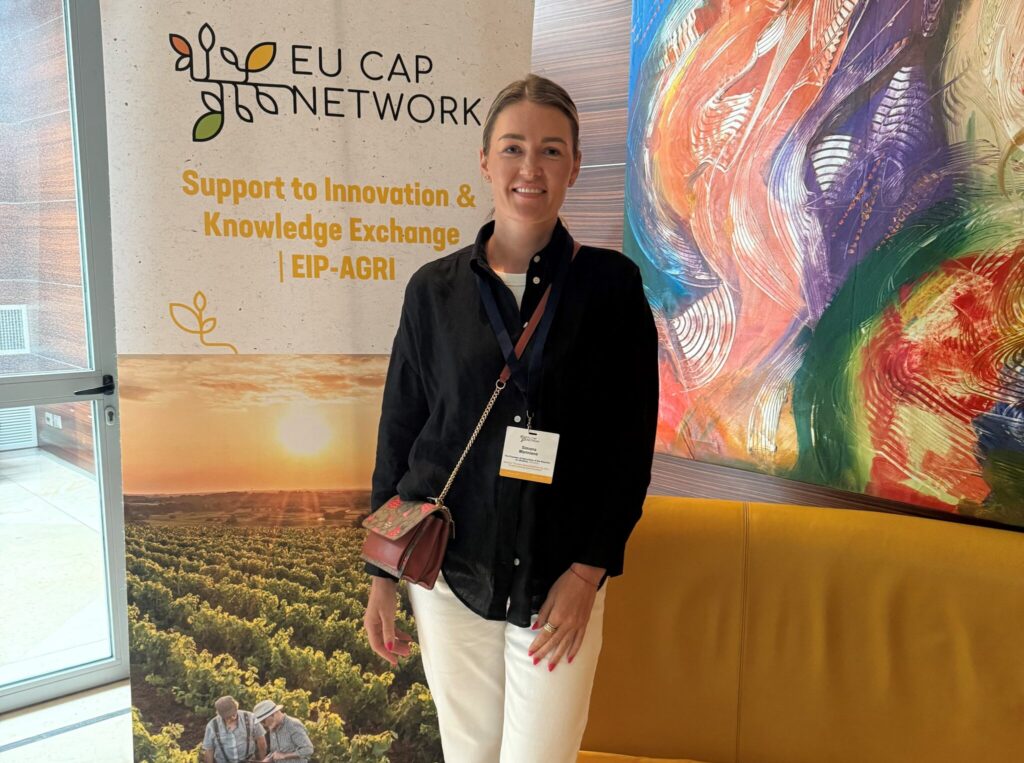The EU CAP Network seminar “On-farm demonstration: Learning and Innovation”, held in Venice, was an important step toward strengthening cooperation among farmers, fostering innovation, and promoting the dissemination of practical knowledge in agriculture. Lithuania was represented at the event by Simona Marmienė, Senior Specialist of the Rural Development and Information Division of the Lithuanian Chamber of Agriculture (LCA).
“The seminar highlighted that real-life experience and direct contact with farms applying advanced solutions is one of the most effective ways to drive change in rural areas. It’s not just about knowledge exchange – it’s about building trust in innovation,” noted S. Marmienė.
Demonstration – a Path to Sustainability
On the first day of the event, participants listened to presentations and engaged in group discussions on successful farm practices, organization of innovation demonstrations, evaluation methods, and learning processes. The second day was dedicated to visits to four farms.
One of the most notable examples was Società Agricola La Fagiana, a sustainable rice farm near Venice. According to Simona Marmienė, the farm left a particularly strong impression due to its holistic approach to the environment and education.
“At La Fagiana, sustainability is not an abstract concept – it’s embedded in daily decisions. From the fields to on-site processing – everything is based on respect for nature, preservation of biodiversity, and conscious farming. Moreover, the farm actively organizes educational activities involving both children and professionals, shaping a new perception of agriculture,” she shared.
A key strength of Società Agricola La Fagiana is activity diversification. In addition to sustainable rice cultivation, the farm processes its products locally, creating higher added value and building strong links with consumers. This model aligns with the EU Green Deal and the Farm to Fork strategy by promoting local food production and short supply chains.
Progressive Farms: From Soilless Growing to Animal Welfare
Vallevecchia is a pilot farm covering 800 hectares – approximately 377 ha are intensively cultivated with cereals, legumes, oil crops, and vegetables in rotation, while the remaining land includes landscape reserves: pine forests, wastelands, hedges, and wetlands – all in a low-urbanization area integrated into the Natura 2000 network. The farm applies modern conservation agriculture techniques, such as minimum tillage and no-till sowing – helping to reduce erosion and improve soil organic matter.
One of the most important innovations is a system for controlling soil salinity and water levels, developed in line with the LIFE WSTORE2 project. The system collects lower-salinity water and distributes it to fields and undisturbed wetlands.
Vallevecchia stands out for its advanced approach to organic farming: the farm features digital beehives that monitor chemical contaminants (e.g., fungicides or insecticides). This is part of the Bee2gether program – a key element in bee vitality and ecosystem monitoring.
The farm regularly hosts field days to showcase technologies, techniques, and innovative farming methods to both local and international farmers and experts.
Vallevecchia is a true example of a modern European demonstration farm, where climate-resilient and nature-friendly solutions are creatively combined with digital and ecological farm management (smart systems and integrated crop protection).
The University of Padua Experimental Farm functions as an innovation hub, conducting research and demonstrations on soilless growing, aquaponics, and the circular bioeconomy.
Meanwhile, Società Agricola Dante represents a complex agro-energy synergy: combining crop production, livestock farming, ecology, and energy generation. The farm proves that modern agriculture can be both sustainable and innovative, integrating traditional production with cutting-edge technologies. It is a prime example of how a large farm can merge ecology, technology, and green energy to become a model for both local communities and agricultural innovation across Europe.
Europe’s Farming Community Grows Stronger through Shared Experience
Advisers, researchers, and representatives of innovative farms from across Europe agreed that on-farm demonstration is one of the most effective methods for transferring knowledge, fostering innovation, and building trust in new practices. Events like these help create a stronger, more resilient European farming community where everyone shares not only success but also challenges.
“Every farmer is both an innovator and a learner. Learning from each other helps adapt to change, implement sustainable practices, and build a stronger countryside – not only in Lithuania but across Europe. This seminar once again proved that sharing knowledge and experience is not just a trend – it’s a necessity if we want agriculture to be sustainable, innovative, and future-oriented,” emphasized S. Marmienė.

